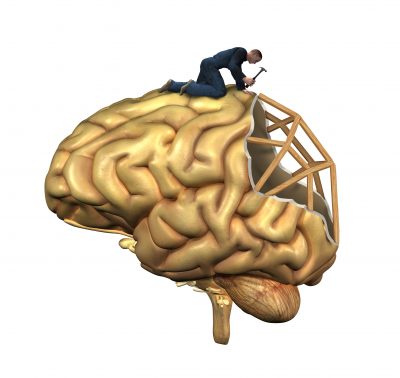 (Society for Neuroscience) The discovery that the human brain can produce new cells in adulthood offers just one example of how adaptable the brain is throughout life. With this knowledge, researchers are investigating how normal aging as well as neurodegenerative diseases like Alzheimer’s disease affect that adaptability, and how we can maintain healthy brain function as our brains age. So what is neuroplasticity?
(Society for Neuroscience) The discovery that the human brain can produce new cells in adulthood offers just one example of how adaptable the brain is throughout life. With this knowledge, researchers are investigating how normal aging as well as neurodegenerative diseases like Alzheimer’s disease affect that adaptability, and how we can maintain healthy brain function as our brains age. So what is neuroplasticity?
(Brainworksneurotherapy.com/uk)
Our brains are constantly being shaped by experience. Most of us have very different behaviours and thoughts today than we did 20 years ago. This shift is neuroplasticity in action; changes in brain structure and organisation as we experience, learn, and adapt.
With every repetition of a thought or emotion, we reinforce a neural pathway – and with each new thought, we begin to create a new way of being. These small changes, frequently enough repeated, lead to changes in how our brains work.
Neuroplasticity is the ‘muscle building’ part of the brain; the things we do often we become stronger, and what we don’t use fades away. That is the physical basis of why making a thought or action over and over again increases its power. Over time, it becomes automatic; a part of us. We literally become what we think and do.
Neuroplasticity is at work throughout life. Connections within the brain are constantly becoming stronger or weaker, depending on what is being used. Younger people change easily; their brains are very plastic. As we age change doesn’t come as easily; the brain loses some of its plasticity and we become more fixed in how we think, learn, and perceive.
Since the brain is pivotal to all we think and do, by harnessing neuroplasticity we can improve everything we do and think.
We know that exercise for the body is critical to maintaining bone and muscular structure, cardiovascular health and blood flow. Now we know these same benefits can be applied to the brain, and that “remolding” in our brain can take place with throughout life, even into “old” age. This science is opening new doors to exciting research and hope for keeping our brains healthy as we age, and even helping those with neurodegenerative conditions such a Alzheimer’s and Parkinson’s Disease.
Pam Brandon is President/Founder of AGE-u-cate® Training Institute, whose mission lies in creating transformative change in an aging world. AGE-u-cate’s newest partnership with Ageless Grace® – 21 Simple Tools for Lifelong Comfort and Ease™️ is their ongoing commitment to helping people of all ages with a groundbreaking body/brain fitness program.
 Responding to challenging behavior for people living with dementia is often the greatest triggers of stress, helplessness and frustration for professional and family caregivers. Learning to be an effective dementia care detective incorporates knowledge of behavioral expression and having effective tools to respond, reassure and comfort.
Responding to challenging behavior for people living with dementia is often the greatest triggers of stress, helplessness and frustration for professional and family caregivers. Learning to be an effective dementia care detective incorporates knowledge of behavioral expression and having effective tools to respond, reassure and comfort. The number of older adults with dementia is forecast to more than double in the next 40 years. Training people to care for these individuals – both professionals and families is paramount in improving the quality of life for the caregiver as well as the care receiver. Is it time to get back to basics in our approach to education and training?
The number of older adults with dementia is forecast to more than double in the next 40 years. Training people to care for these individuals – both professionals and families is paramount in improving the quality of life for the caregiver as well as the care receiver. Is it time to get back to basics in our approach to education and training? Losing sleep, poor eating habits, irritability or short tempered – these symptoms may start small and snowball quickly into what is referred to as caregiver burnout. Professionals and families need to know what to look for and how to help caregivers. It’s a serious matter and growing, as more families are caring for their loved ones at home with little or no help.
Losing sleep, poor eating habits, irritability or short tempered – these symptoms may start small and snowball quickly into what is referred to as caregiver burnout. Professionals and families need to know what to look for and how to help caregivers. It’s a serious matter and growing, as more families are caring for their loved ones at home with little or no help.